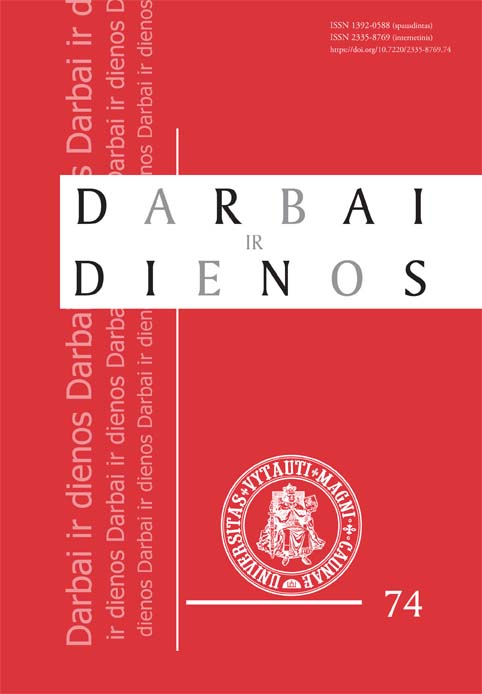Orumas pandemijos metu: moralinis jausmas, vaizduotė ir komunikacija
Dignity in the Period of Pandemic: Moral Sense, Imagination, and Communication
Author(s): Gintautas MažeikisSubject(s): Philosophy, Ethics / Practical Philosophy, Pragmatism, Theory of Communication
Published by: Vytauto Didžiojo Universitetas
Keywords: Dignity; Moral sensibility; Moral imagination; Communicative action; The entity; Nothingness; Pandemia; COVID-19;
Summary/Abstract: The aim of the article is to explain the becoming and the state of dignity during a pandemic by critically considering the intersections of moral sensitivity, symbolic thinking configurations, and public communication. The intensity of moral sensitivity (A. Smith, D. Hume), moral imagination (M. Johnson, L. Donskis), and public communication (J. Habermas, A. Honneth) composes a coordinate system of understanding in which the development of dignity can be revised. Moral sensitivity, moral imagination, and social-political communication are axes that could help to understand the event of disease. The main method of analysis is applying Critical Theory (E. Bloch, H. Marcuse, J. Habermas, G. Deleuze) and dialectics (Hegel, T. Adorno) to understand fictional literature in all the three dimensions. The novels of Giovanni Boccaccio, Thomas Mann, Albert Camus, and José Saramago are interpreted to reveal the role of pandemics in the becoming of the dignity on the basis of consistencies and inconsistencies in the system of moral sensibility, moral imagination, and normative communication. The theory of dignity was presented by E. Bloch and his idea that dignity and hope depend on poetry, fiction, utopias and transcend everyday rationality, sublate (Aufhebung) instrumental reason, and overcome reification. The sensibility and social relations were interpreted in the existential phenomenology of A. Šliogeris; moral imaginary and history of ideas were presented in the context of Donskis’s books; communicative action and consciousness of the dignity (Würde) were reflected by J. Habermas. The chosen method of interpretation explains the shifting moral relationships in the situation of disease and death. The pandemic was interpreted as a fold (G. Deleuze) which consists of bio, social, artistic, and political elements.
Journal: Darbai ir dienos
- Issue Year: 2020
- Issue No: 74
- Page Range: 99-121
- Page Count: 23
- Language: Lithuanian

